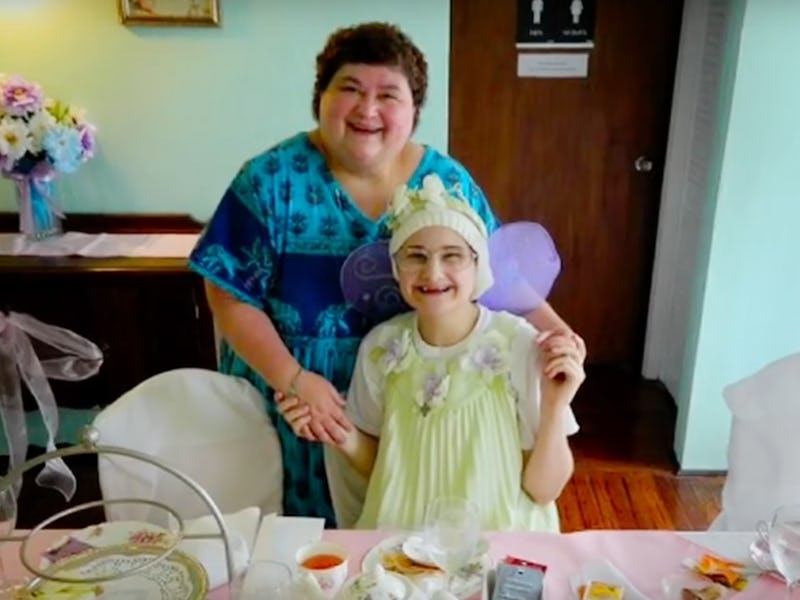To casual onlookers, Dee Dee Blancharde appeared as a devoted, caring mother taking care of her sick and disabled daughter, Gypsy Rose Blancharde. Dee Dee, a central figure in the 2017 HBO documentary Mommy Dead and Dearest, told people her daughter had a laundry list of health issues and diseases. But in June of 2015, Gypsy was convicted of the second-degree murder of her own mother.
Caution: Spoilers for Mommy Dead and Dearest ahead.
The documentary reveals that for years, Gypsy Rose was the victim of a very specific type of child abuse at the hands of her mother. During that time, Dee Dee lied about her daughter’s illnesses, forcing her to have surgeries and other treatments. Doctors in the documentary described Dee Dee’s total control of her daughter’s life as similar to the command kidnappers have over their hostages. Psychologists refer to this kind of abuse as a form of Munchausen syndrome — specifically, Munchausen by proxy.
The syndrome, characterized as a chronic mental illness, is named after the fictional Baron Munchausen, a character known for his dishonesty in Rudolf Erich Raspe’s 1785 book Singular Travels, Campaigns and Adventures of Baron Munchausen. As Dr. Richard Asher explained in his 1951 description of Munchausen in the Lancet, the syndrome is named after the Baron because it is characterized by the telling of dramatic and untrue stories. Patients with Munchausen seek medical attention for fake illnesses. Not only do they lie about feeling sick; they sometimes go as far as tampering with blood and urine tests and undergoing unnecessary surgeries to “prove” that they are. Asher speculated that patients with the syndrome fake being sick because they are seeking attention.
But Gypsy Rose wasn’t the one faking her illnesses. She did so because her mother convinced her she was sick — a form of abuse called Munchausen by proxy.
Dee Dee Blancharde told people her daughter Gypsy Rose Blancharde had a list of health issues.
In this form of the illness, rather than an individual lying about being sick, a parent or caretaker lies about the symptoms of another person, who is more often than not their child or dependent. Dr. Roy Meadow was the first to report a case of Munchausen by proxy in The Lancet in 1977, describing how he treated a six-year-old girl with blood in her urine, only to discover that the girl’s mother had been putting blood in the urine samples. Later, in 1982, Meadow published another study in the British Medical Journal reporting that 19 children underwent surgery because their mothers lied about their health issues and medical history.
According to psychologist and Munchausen expert Marc Feldman, Ph.D., caretakers lie about their dependent’s illness for emotional gratification. He believes that these people are “looking for sympathy or attention, care or concern that [they feel they are] unable to get is any other way.”
Gypsy Rose suffered one the worst documented cases of Munchausen by proxy. She was confined to a wheelchair, fed through tubes and even forced to have glands in her mouth surgically removed.
Fortunately, Munchausen syndrome by proxy is rare. According to the Cleveland Clinic, only 1,000 of the 2.5 million cases of child abuse in the U.S. reported annually are from Munchausen by proxy. But unfortunately, because people like Dee Dee who abuse their dependents in this way so often appear to be loving and doting caretakers, doctors still have difficulty diagnosing the syndrome, even when it’s happening right in front of them.
